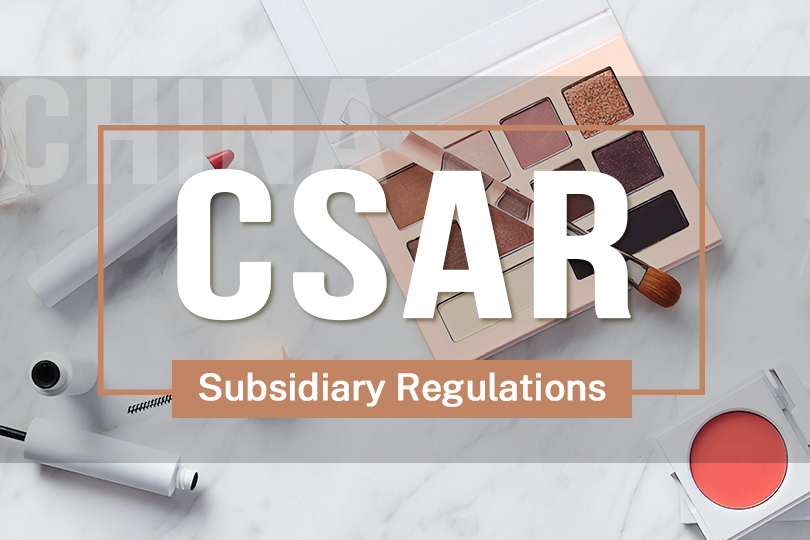The Cosmetic Supervision and Administration Regulation (CSAR) – released by China State Council on June 29, 2020 – will officially replace the Cosmetics Hygiene Supervision Regulation from the 1st of January 2021.
According to Article 1 of the Official State Council Decree[1],
‘These Regulations are formulated in order to regulate the production and operation of cosmetics, strengthen the supervision and management of cosmetics, ensure the quality and safety of cosmetics, safeguard the health of consumers and promote the healthy development of the cosmetics industry’.
With the approval of these new regulations, entirely based on the distinction between general and special cosmetics, CSAR allows ‘the end of mandatory animal testing for imported general products’[2]. Ingredients will be classified in ‘used’ and ‘new’, and the new ones again divided in expected high[3] or low risk: in the first case, NMPA[4] registration is compulsory and ingredients have to be approved, while low risk components just require standard filing[5].
The approval of these new regulations requires a deeper commitment and accountability of cosmetics enterprises, that will be considered responsible for the safety and quality of the sold products, releasing safety assessment dossiers and R&D reports concerning new regulatory cosmetic standards and ingredients, strictly cooperating with the NMPA.
More specifically, the filer company must report every relevant information to NMPA every six months for three years[6]. New ingredients that do not show safety problems during this three-years period, will be included in the IECIC[7].
Prior to the registration or filing process, the applicant company of new cosmetics ingredients has to ‘entrust’ a professional institution that can present at least five years of relevant work experience related to cosmetics quality and safety. Secondly, cosmetic efficacy must be proved through scientific evidence such as relevant literature and research data and made available to the public NMPA’s website. Furthermore, imported cosmetics also require ‘certifications related to manufacturing quality control of the overseas manufacturers, together with official documents proving those products have already been put into market in the country’ where they are manufactured. If the product is new and specifically produced for Chinese market, the filer company must proof its quality and efficacy through research and test data.
The State Council Official Decree also states that both the Chinese E-commerce platforms and the beauty/hairdressing institutions will be supervised for compliance with CSAR new regulations. Concluding, if from one side Chinese Government is ready to allow beneficial conditions in order to relax cosmetics’ industry regulations and improve business opportunities avoiding animal testing, greater responsibility and transparency is required directly to cosmetics’ sector enterprises.
Please, feel free to contact us for further information.
[1] http://www.gov.cn/zhengce/content/2020-06/29/content_5522593.htm
[2] CSAR Subsidiary Regulations: China Indicates the End of Mandatory Animal Testing for Imported General Cosmetics, Xu W., August 2020
https://cosmetic.chemlinked.com/news/cosmetic-news/csar-subsidiary-regulations-china-indicates-the-end-of-mandatory-animal-testing-for-imported-general-cosmetics
[3] Whitening agents, sunscreen, new preservatives, hair products and colorants.
[4] National Media Products Administration
China Finalizes Cosmetic Supervision Legislation, Grabenhofer R., June 2020
https://www.cosmeticsandtoiletries.com/regulatory/region/asia/China-Finalizes-Cosmetic-Supervision-Legislation-571562451.html
[5] Some important considerations according to the Official State Council Decree, article 77, are related to toothpaste, that shall be managed in accordance with the provisions of the regulations on general cosmetics and soap, that doesn’t apply to these new regulations.
[6] https://www.cosmeticsandtoiletries.com/regulatory/region/asia/China-Finalizes-Cosmetic-Supervision-Legislation-571562451.html
[7] Inventory of Existing Cosmetic Ingredients in China
Comments are closed.




Recent Comments